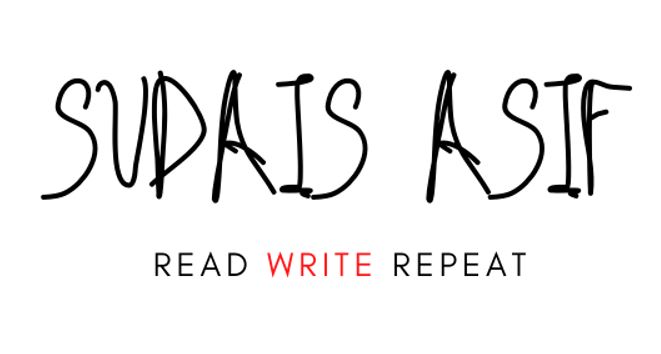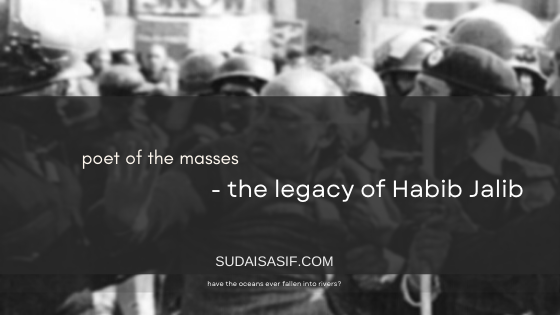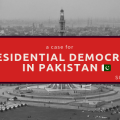Revolution and poetry, the two seem to have a history together, intertwined over centuries. At many times, they have led to the fall of Sultans whose power knew no obstacles and the glory of Empires which knew many conspirators. Such was the fate of the birth of Pakistan as well, exactly 74 years, 1 month, and 5 days ago. It too entailed the struggle of many visionaries but alas, soon after, the country seemed to be tumbling into the hands of the power-thirsty gasping for breath. But despair not, like every age, poets were there to stir the hearts of the populace and wake them, just enough so that they hold on to their breaths to return one day.
The time was the 1960s, who comes to your mind? Anyone but – wait, Faiz Ahmad Faiz? The literary genius who penned down Hum Dekheinge whose chants are even heard in rivaling India? Perhaps, Saadat Hasan Manto – a rebel long gone fighting against the progressive charlatans of the time, one story at a time.
Dear reader, how about the poet of the masses, Habib Jalib? Acclaimed as such by Faiz Sahib, Jalib the Poet is known well among literary circles today but scarcely amidst others through a twist of bad fate. Luckily though, his poetry has lived on leaving us with one of the greatest masterpieces that have been witnessed by the theme of revolution. A look at his work, therefore, is long due; letter by letter, word by word, poem by poem.
To start without the bondage of a timeline, there was a day when Habib Jalib met Hafeez Jalandhari – yes, the writer of Pakistan’s national anthem in Anarkali. Lo and behold, the following dialogue ensued:
Jalandhari: I’m very busy, you don’t know, I’ve become his advisor while pointing his finger towards the blue sky above.
Jalib: Oh! So you’ve become God’s advisor now?
Jalandhari: No, no, I’ve become the advisor of Ayub Khan. He calls me anytime and asks, tell me Hafeez, what should I do?
Jalib: So what did you advise him?
Jalandhari: I told him, that these journalists, he should keep a strict hold on and then there’s this poet who sings chants of “Main Nahin Manta, Main Nahin Janta”, on him too! Send him to jail.
Jalib’s response:
I told him of these people – a hundred million
a mixture of ignorance
who have lost their conscious
ever ray of hope
has vanished amidst this darkness of oppression
This news is true, they are the walking dead
without any intellect are these people
a disease infecting the essence of life
and in your hands is their cure
Mainey os se yeh kaha(I said this to him)
you are the undimmed light of God
the intellect, the understanding
the nation is with you
verily with your being
is the salvation of the country
you are the radiance of the sun
after you is the ascension of darkness
Those few who dare to speak
all of them are mischief-makers
grab their tongues
squeeze their necks
Mainey os se yeh kaha(I said this to him)
those who were so proud of their speech
silent are all those
Within the land is peace
a difference unseen before
between today and tomorrow
are the people imprisoned
with their own money
in your rule
a man is he of stature
who stays kept at the doorway
he who asks for mercy
forgive his mistake
Mainey os se yeh kaha(I said this to him)
every minister, every ambassador
none is like the advisor
Wow, what an answer!
I swear on your intellect
an amazing choice it is
the rise of an officialdom
while the people slumber
the statements your advisor utters
bravo is what the people respond with
Maine os se yeh kaha(I said this to him)
China is our friend
sacrificed are our lives for it
but the system that is there
don’t go seeking it
a salute from afar to it
a hundred million are these donkeys(Pakistan’s population at the time)
who are called the masses
never could they become rulers
You
you
you
are our trust,
they a mirage
such is my prayer
that
forever your remain our president
Maine os se yeh kaha(I said this to him.)
Serving as a sarcastic reply to Hafeez Jalandhari, this fine piece of poetry not only served as an eye-opener for the people who had been bearing the brunt of Ayub’s authoritarian policies but also invited great hospitality from the premier himself – in jails is another story.
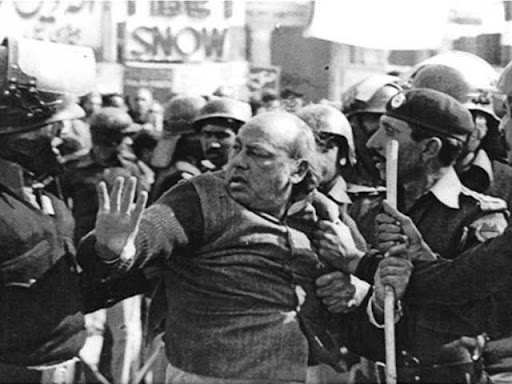 Image Source: Azhar Jafri
Image Source: Azhar Jafri
An interesting thing is that his life in jails was too all poetry. In fact, worried by the fact that his poetry always seemed to leave the ironclad walls and make its way to the common man, one government decided to send him to Mianwali Jail telling him that you shall find neither a pen nor a paper here to write.
To this Jalib so flawlessly responded:
My poetry does not need a pen or paper. This prison attendant that stands across you, I will recite my poetry to him. He will recite it at the chowk. And from the chowk it will reach Lahore and then to the entire country.
Yet, this was not all. Rewinding a bit, remember how our dear national anthem writer spoke of a poet whose chants deserved a prison sentence? Those chants, they too were of Jalib in another one of his legendary pieces – Dastoor:
He whose lamp only glows in palaces
moving with the wishes of a few
He who falls weak
under the darkness
of every self-interest
Such a system
devoid of any light of the dawn
I do not believe in, I do not know of!
I too am not afraid of the gallows
I too am Mansur, go tell the enemy!(Mansur: a reference to the historic fearless blasphemer)
Why do you scare us with the prison wall?
These words of injustice, this night of ignorance
I do not believe in, I do not know of!
Flowers have started blooming on the tree branches, you say.
The drinkers have started finding their wine, you say.
The bruises gracing chests have started healing, you say.
This open lie, this robbery of the intellect
I do not believe in, I do not know of!
You have robbed us for centuries
of peace
yet your spells shall not work on us now
Why do you claim to be the curer for the afflicted?
you are not such
even if some may believe so
I do not believe you, I do not know so!
This poem was written in 1962 when Ayub Khan elected himself president through his controversial constitutional change in order to pave the path for his presidency. In response, these stanzas were inked describing how the president had made a mockery of the common man’s intellect while masquerading it with fancy claims such as flowers have started blooming on the tree branches. Finally, when it was recited, applause erupted but so did the lightbulbs of the police station.
Yet, let’s go to another rosy incident of the famed writer where all the fame, many troubles, and much agony begin. You see, something known as a Mushaira – a traditional poetry recital – was held one day in Rawalpindi at the Pakistan Broadcasting Corporation. As Pakistan is gripped today with the forces of authoritarianism, then too, the enemies of free thought censored all that went against them. As such, poets praised the rulers forgetting the saying of his Highness Muhammad – Peace Be Upon Him – in a bid to avoid pitch black bars. So in this particular Mushaira, everyone made sure to not say a word against the establishment of the time as were the official instructions given to them. But then came the turn of Habib Jalib. He said everything but what he was told to:
The murkiness of teargas somewhere
with bullets raining another-where
In this first night of ignorance
how do I praise you?
This led to his very first arrest starting a journey that wouldn’t end, not then, not now.
Fast forward to Ayub’s deposition and Yahya Khan’s ascension to the highest Pakistani office. Then again, a Mushaira was held, this time in Murree with Jalib’s now established reputation as a mischief-maker. Even though the organizers tried to give him a slot just after the very famous Dilawar Figar, he checkmated them with another one of his pieces:
That one person who was here enthroned before you
he too believed with such staunchness of being our God
For tell me if anyone has stood parallel to the people
where do I find those who held much pride in themselves?
These words were said while staring at a portrait of Mr.Yahya Khan serving as a humble reminder to his supporters on what his tomorrow would have in store for him.
Done with Ayub and Yahya, rest assured, he spared no other that dared to infringe the rights of Adam. With the premiership of Zia-ul-Haq, that too as a dictatorship hated by the poet, once again words flew smoothly:
Darkness as light,
the stormy wind as a gentle breeze,
a human as God – how can I write so?
In this couplet, “darkness as light” is translated from “Zulmat ko Zia” which contains a reference to Zia-ul-Haq’s forename which literally means “light”. Mocking this irony, Jalib asks, how do I call him Zia when he in actuality is darkness? To date, this anthem remains on the lips of progressives seeking to disassociate themselves from the shackles of Zia’s extremist Pakistan.
Not surprisingly, the poet was also sent to jail for this poem by Zia during which he was given an offer to remove the line that called Zia as darkness in return for his freedom. To this came the following reply:
When I say a couplet, it becomes the trust of the people, I don’t take it back.
To take the fight to another front, today, we still witness the inequality that is found between the provinces of Pakistan. It is no secret that Punjab remains at the forefront taking the lion’s share in the country’s resources. Thinking ahead of this time, the original Habib Ahmad here too had a few words to say:
Wake up my Punjab for Pakistan fades away
All dreams have failed for Pakistan fades away
Sindh, Balochistan cry since ever
and the people of Punjab yet still sleep..
In another interesting yet distasteful incident, the Nawab of Kalabagh once had the opportunity to host the Shah of Iran, then Raza Pahlavi. This prompted the former to invite a famous film star named Neelo to come dance. However, Neelo refused in response to which she was disrespected and even threatened, leading her to end her life ultimately. Jalib here too made sure his words reminded the cruel of their crimes penning down a poem named Nilo:
Of the etiquette in an emperor’s court – you are not aware of
for dance is done even in chains
If you dare refused, how so?
In the shadow of an Emperor, this is how life is lived.
Of the rich comes a plan rebellious girl
to make you dance using lashes
should your anklets fall silent
you should not be brought into conscious till the end of time
When the people shall see such a ghastly scene
and the anger of the emperor will rise a little
by your condition, every person shall be taught a lesson
to take pride in lifting one’s head, there would be no such thought
for those who weigh heavily on a royal’s mood
yes they get a wine drink full of poison
Of the etiquette in an emperor’s court – you are not aware of
Dance is done here even in chains.
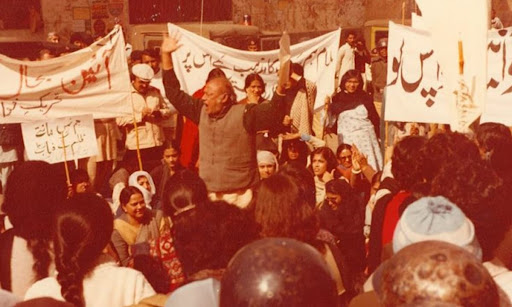
Image Source: Maimoona Shirazi
Be that as it may, history repeated itself shortly after when Zulfiqar Ali Bhutto during his reign called for an actress to dance once again for a Shah, inviting words – seen but not learned from before:
In this season of intoxication
your hunters await you
with your lustrous display,
go laugh
adorning the jamboree
or else
the way to jail is here.
This came about despite the fact that Jalib had admired Bhutto’s struggle for democracy to a certain extent as opposed to his dictatorial predecessors. But this didn’t stop him from criticising the premier either as we’ve seen. On one occasion when the strongman prompted Jalib to be a part of his party, he uttered with much ease,
Mr.Bhutto, have the oceans ever fallen into rivers?
When the time for Benazir Bhutto came, as with every democratic leader, Jalib supported her too writing an entire poem for her bravado:
The ones with weapons are scared of a girl all-alone
Spread are the rays of courage through a girl all-alone
They’re scared, they’re dead, they’re trembling
the Maulana, the trader, the general, their bootlickers from a girl all-alone
Do not talk of freedom, do not meet people, they say!
Absolved of any conscience, oppressors, jealous of a girl all-alone.
Yet, this didn’t prevent him from criticizing her too when she failed to change the poor’s condition stating:
The fate of the poor remains still the same
Surely have the ministers days changed
every Bilawal of this country is in debt
with the Benazirs walking without any shoes
In summation as you – dear reader – may have noticed, Jalib’s life was embroiled in a constant fight with the forces of injustice with a mere pen, never bloodshot but always at the forefront of the battle. His was a short journey of a poet who deserves much more remembrance than that often given. He needs to be brought once again into the spotlight.
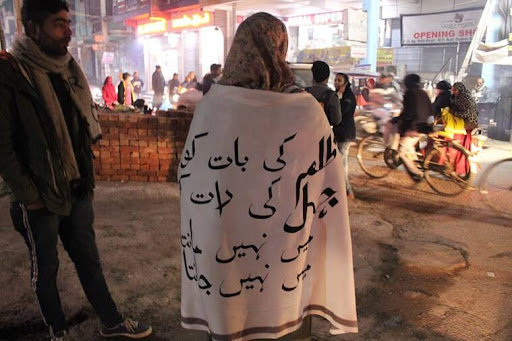 Image Source: The Indian Express
Image Source: The Indian Express
His poetry is not only capable of invigorating enthusiasm in the face of injustice as was seen recently with students singing Dastoor in New Delhi to protest against the Citizenship Amendment Act(CAA) but also can serve as a lesson to the youth on standing firm & rebellious when needed.
To top this off, footage that survives of his own recitals remains melodious than ever-inspiring at times singers like Mehndi Hassan and sometimes politicians like Shahbaz Sharif. Academics such as Dr.Taimur Rehman and Shahram Azhar have also released some brilliant compositions which are worth listening to, both as a part of the LAAL Band and separately.
Yet, when parting ways, it is to be noted that Jalib’s daughter today lives a life of poverty with zero government support begging the question, isn’t it time a state atone for its sins? Perhaps, remembrance of when our poet refused government aid for the cure of his body holds a meaning, a meaning that his kin is meant to stand on no one’s blood and sweat but their own. Perhaps, this is why on a grievous day – the 13th of March 1993 – when Jalib faded away, offers made their ways in, may we bear the monies for the journey of his charpoy? No was the answer, always shall it remain so.
____________________________________________________________________________
Note: I have used multiple sources for researching this piece including interviews, journalistic pieces, musical adaptations, and plain poetry. All translations have been done by myself in order to convey the poet’s genius even in the English language. However, for some of these translations, I have used a lot of dictionary help such as from Rekhta owing to my not-so-great grip on the Urdu language.
